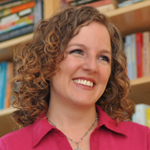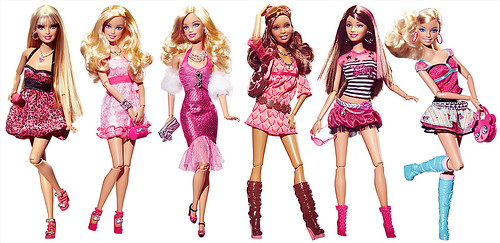This article you posted, and the comments so far in response, directly addresses something I've been contemplating lately.
I agree that the vampire analogy is bad and that we must tred carefully and with much research and consideration when writing about people from a race other than our own.
She got me with the set-up scene though about wanting to see an ideal world, or even the diverse world outside our window in our fiction. I want that very much.
I think it's truly sad that stories from PoC are turned down. I confess, despite trying to find as many non-white perspectives as possible in my quest to diversify my fiction, I remained ignorant that the colour of the author had more effect than the colour of the characters.
It really shouldn't be that way, and as much as I love to tell stories, it makes me wish I was a publisher and editor more than an author. I could be doing more to rectify the situation than merely writing those books "for them"
Fantasy is my favourite genre, if you know of any AoC (authors of colour if I'm not crafting an acronym too liberally) I can buy, both self-pubbed on Kindle or available at brick and mortar, I would definitely appreciate a list, or link to some lists.
I think the subject matter of this article and the counter about POC authors' troubles getting published at all being part of the problem would deem such links/lists an appropriate shared response. I would even appreciate some blog links. I already follow several blogs/websites by various PoCs, but only one of them addresses the questions on my mind in a way that clearly depicts any cultural differences beyond skin colour.
I'm definitely now rethinking the character idea for a black girl studying runic magics (inspired by nordic rune lore). I want more diversity and to fight against white washing leads, not participate in a cultural white washing instead. *shivers*
Looking forward to reading the other takes on this article and the situation it addresses.
Oh, also, addressing Kitty directly, you mention that the
Black audience is dying for positive fiction and if it is marketed towards them
I remember having that feeling in elementary school when all the stories I was handed and read to as a young girl were all about boys (with girls relegated to token side characters like, the mom, the love interest admired a few times in text, etc.). I am not saying the two are comparable, only that I experienced it enough to know that black audiences are probably more starved since, despite all the white boys, they were all white like me, and I did stumble upon more than a few stories to kindle my love of reading that were about white girls.
Despite looking, I have only stumbled on a few stories about PoCs that are within my preferred genre and I think they're all white authors. Most "black stories" I've encountered are anything but "positive" outside of the few fantasy stories that involve them. I'm writing buddies with a Chinese writer too. She writes about Chinese people. It makes me very sad to learn that I might be published first because I'm white even if her talent surpasses mine.
I find this all so very frustrating and wish we could all just write about people being people and publish without discrimination. In the meantime, if you have any suggestions of books/authors who are PoCs, indie or traditional publishing, I'd love to hear them, give them a looksee, and put my money where my mouth is as I can afford to do so.
I don't want to usurp characters and experiences from more authentic, lived it, points of view but...I don't want to be part of the crowd furthering their invisibility either. So many different PoCs have been a big part of my life at different points over the years that I wouldn't feel right not including them in my stories. Kinda feels like darned if I do, darned if I don't XD
I guess it's all good if I write them like real people and don't whitewash their cultures AND I don't make it big with their story and thus take that opportunity away from an AoC? I guess to an extent I knew an author's obviously identifiable as non-white name could effect sales and marketability, I just didn't realize how bad it really was. I've had lengthy talks about it with my writing buddy, especially considering that "Saronai" sounds no more white than "Ting."
In a battle of writing cultures only within your own racial bracket though...where does that leave those of us who always felt like an outsider to our own culture? No one will question me if I write white, fair enough, but sometimes I understand wholly different cultures better than my own =_= (which is probably at the heart of why I get along so well with exchange students and immigrants despite having never left the US).
I'm confused, so sorry if my ramblings show it all too well.



